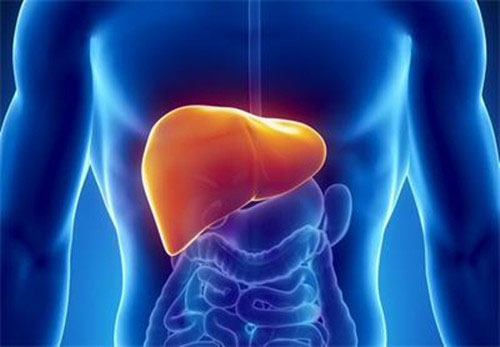1. JCI: Scientists are expected to develop new therapies that effectively inhibit the progression of lung cancer
The gene p53 can act as a tumor suppressor under normal conditions, but it will participate in the development and development of nearly half of human cancers when it is mutated. Recently, researchers from the Massachusetts Massia Cancer Research Center revealed lung cancer through research. The molecular mechanisms by which cells are dependent on mutant p53, and related research may provide new ideas and hopes for the development of new and effective lung cancer therapies.
Every year, lung cancer causes many cancer patients to die, including colon cancer, breast cancer, prostate cancer, etc. According to the American Cancer Society, there will be more than 220,000 new lung cancer patients in the United States in 2017. Of course, researchers are needed. Rapidly develop new and effective therapies to deal with. In this study, the researchers revealed a novel strategy to inhibit the development of lung cancer in mouse models and cultured cell lines by blocking the function of a supervised protein called ChK1, which is capable of increasing the success of genome replication.

Researcher Deb said that certain mutant p53 not only relax the function of tumor suppression, but also may cause cancer. In this study, we first elucidated a mechanism for how cancer cells depend on the mutation function of p53 to survive. And growth, based on relevant research results, we may be able to develop new therapies to kill lung cancer cells carrying mutant p53 without damaging healthy tissue.
The key to this study is the replication of the genome during cell growth. All cells undergo DNA replication and cell division through this process, and each stage of the cycle is important for critical processes such as cell genome replication and cell division. By studying the genome of cancer cells, the researchers found that the mutated p53 gene is capable of producing excess ChK1 and cyclin A proteins that help regulate cell cycle progression and ChK1 function, especially to help inhibit replication forks. "collapse"; before cell division, our genome must be replicated from a pre-set replication origin to make a copy of the daughter cells; the newly replicated DNA will begin to replicate along the replication fork of the parental genome, and more A supervised protein (such as ChK1) can also inhibit the newly formed replication fork from "collapse" before DNA replication is completed. When the replication fork "collapses", the cell classification will not be completed and the cell will die.
Inhibition of ChK1 protein is often used to inhibit the growth of cancer cells. However, it is currently rarely successful in clinical trials. The results of this study suggest that ChK1 inhibitors may be effective in blocking cancer cells in patients with acquired p53 function. Reproduction, therefore, ChK1 inhibitors may not currently be able to be used in a suitable cancer population. Finally, researcher Deb said that we plan to develop a new strategy to use this study to block the spread of lung cancer carrying mutant p53. Since p53 can be mutated in many cancers, this study may help guide a variety of Treatment of different types of cancer patients.
2. Nat Genet: Genome-wide association studies elucidate novel susceptibility loci for lung cancer
Recently, a research report published in the international journal Nature Genetics, researchers from the University of Toronto and other institutions conducted a large genome-wide association study using genotyping platforms developed by several cancer research institutions. A novel susceptibility locus for lung cancer was identified.
Although smoking is a major risk factor for lung cancer, past studies have shown that the heritability of lung cancer may account for 18%; of course, in the previous genome-wide association study, researchers also identified multiple lung cancer susceptibility sites. However, the researchers cannot explain the hereditary nature of most diseases. In this study, researchers have made major breakthroughs in this research.
In this study, the researchers studied European individuals with existing data (including 14,803 subjects and 12,262 control individuals), and they eventually identified 18 disease susceptibility sites, including 10 novel sites. These novel sites can reveal dramatic changes in risk patterns between lung adenocarcinoma and squamous lung cancer, with four sites associated with overall lung cancer and six sites directly associated with lung adenocarcinoma. The researchers also found that mutations in multiple genes involved in telomere function may play a key role in inducing lung adenocarcinoma risk (not squamous lung cancer risk).
Organic turmeric powder is made from pure turmeric rhizome, the main ingredient is curcumin. Curcumin is a strong antioxidant with powerful anti-inflammatory properties. Turmeric is known to support joint health, digestive system, and wound healing. As a seasoning, turmeric powder has a long history in Asia. It can be used as a seasoning and yellow coloring agent. It is a commonly used seasoning in the family, used for curry powder, seasonings, etc.
Turmeric Powder,Organic Turmeric Powder,Turmeric Root Powder,Curcuma Powder
Organicway (xi'an) Food Ingredients Inc. , https://www.organicwayinc.com